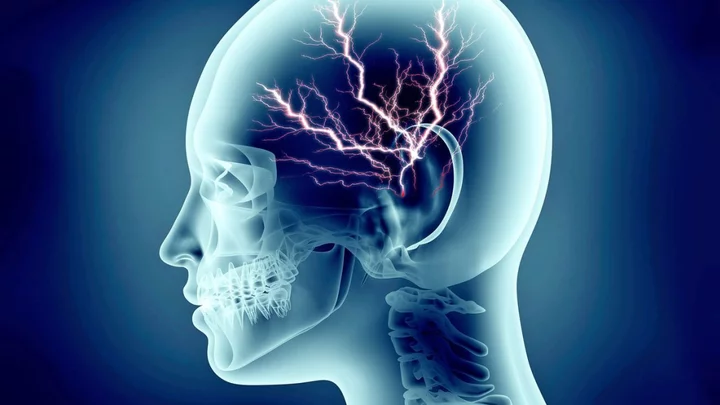
Meta Fined Record €1.2 Billion in EU Over US Data Transfers
Facebook owner Meta Platforms Inc. was hit by a record €1.2 billion ($1.3 billion) European Union privacy fine
2023-05-22 17:47

Analysis-Regulators dust off rule books to tackle generative AI like ChatGPT
By Martin Coulter and Supantha Mukherjee LONDON/STOCKHOLM As the race to develop more powerful artificial intelligence services like
2023-05-22 13:29

China fails Micron's products in security review, bars some purchases
BEIJING (Reuters) -China's cyberspace regulator said on Sunday that products made by U.S. memory chipmaker Micron Technology had failed its
2023-05-22 07:50

Instagram down for thousands of users
(Reuters) -Meta Platform Inc's Instagram said the company was aware that some people were having trouble accessing the app on
2023-05-22 07:45

China tells tech manufacturers to stop using Micron chips, stepping up feud with United States
China has stepped up a feud with Washington over security by telling users of computer equipment deemed sensitive to stop buying products from the biggest U.S. memory chipmaker, Micron Technology Inc. The country's cyberspace agency says Micron products have unspecified “serious network security risks” that threaten China’s information infrastructure and affect national security
2023-05-21 23:48

Scientists have discovered why we wake up earlier as we get older
Are your grandparents up very early in the morning, without fail? Well, it turns out there are scientific reasons why older people wake up earlier as they get older. It’s been revealed that in later life, the natural process of ageing leads to changes in the times the body approaches sleep. According to HuffPost, our approach towards resting and amount of sleep we require is down to both genetics and our age. Cindy Lustig, who is a professor of psychology at the University of Michigan, said: “Like most of the things that change with age, there’s not just one reason, and they are all interconnected.” Sign up to our free Indy100 weekly newsletter It’s all to do with the brain becoming less responsive as people age to factors such as sunlight, social cues and physical activity which indicate where in the day we are at any given time. “The wiring of the brain is likely not sensing... and responding to the inputs as well as it should because it’s an ageing brain,” Dr. Sairam Parthasarathy, the director of the Center for Sleep and Circadian Sciences at the University of Arizona Health Sciences, also told the publication. “These are all what we call time givers, or they give time to the brain,” he said. In other words, they help the brain sense where it is in the 24-hour circadian cycle. Younger people can more easily connect indicators like eating dinner with the idea of sleeping in the next few hours. However, that’s not as easy for older people to register naturally, especially as their vision tends to suffer in later life. “Interestingly, one of [the reasons] seems to be that the vision changes that come with age reduce the intensity of the degree of light stimulation that our brain receives, which plays an important role in ‘setting’ our circadian clock and keeping it on track,” said Lustig. Have your say in our news democracy. Click the upvote icon at the top of the page to help raise this article through the indy100 rankings.
2023-05-20 22:52

G7 calls for adoption of international technical standards for AI
By Kantaro Komiya and Supantha Mukherjee TOKYO (Reuters) -Leaders of the Group of Seven (G7) nations on Saturday called for
2023-05-20 16:24

Scientists 'surprised' by 'strange underwater road' discovered in Europe
It’s not quite the lost city of Atlantis, but scientists have just uncovered a slice of history that had been swallowed up by the sea. Experts admitted that even they were surprised when divers unearthed a 7,000-year-old stone road that had lain buried under layers of sea mud. The ancient structure was discovered after archaeologist Igor Borzić, of the University of Zadar, spotted “strange structures” nearly 16 ft (5m) underwater in the Bay of Gradina, off the coast of Croatia. The submerged road once linked the island of Korčula to an artificial, prehistoric settlement that belonged to a maritime culture known as the Hvar. Sign up for our free Indy100 weekly newsletter The university released footage of the incredible finding over the weekend. It showed the passageway which consisted of stacked stones and measured some 12 ft (around 4m) across. Archaeologists believe people walked this road “almost 7,000 years ago”, with radiocarbon dating of wood near the site suggesting the settlement may have been built around 4,900 BC. “In underwater archaeological research of the submerged neolithic site of Soline on the island of Korčula, archaeologists found remains that surprised them,” the University of Zadar said in a Facebook statement. “Namely, beneath the layers of sea mud, they discovered a road that connected the sunken prehistoric settlement of the Hvar culture with the coast of the island of Korčula.” Borzić and his team also discovered another “almost identical” settlement on the other side of Korčula Island. Neolithic artefacts including a stone axe, cream blades and sacrificial fragments, were found at the site which lay at a depth of 4-5m. Understandably, the researchers were delighted and, as they continue to delve into their nation’s past, we wonder what else they’ll unearth. Have your say in our news democracy. Click the upvote icon at the top of the page to help raise this article through the indy100 rankings.
2023-05-20 15:46

Scientists find that AI can read thoughts from monitoring your brain activity
Scientists have revealed they had found a way to combine the technology of brain scans and artificial intelligence to transcribe “the gist” of people’s thoughts. Alex Huth, an assistant professor of neuroscience and computing science at the University of Texas at Austin, and a co-author on the new study published in Nature Neuroscience, said that ‘this is a real leap forward.’ The study was led by Huth and Jerry Tang, a doctoral student in computer science. The main development from this study is that it’s non-invasive. This means that subjects do not require surgical implants. Instead, brain activity is measured using a functional magnetic resonance imaging (fMRI) scanner. Sign up to our free Indy100 weekly newsletter In the study, individuals listened to hours of podcasts in the scanner. Then, given the participant’s consent to have their thoughts decoded, they listened to a new story and the machine-generated corresponding texts from brain activity. It’s not a word-for-word transcript. For example, when an individual heard the phrase ‘I don’t have my driver’s licence yet’, the model decoded the individual’s thoughts to read as ‘she has not even started to learn to drive yet.’ Even when participants thought up their own stories, the machine was able to decode their thoughts still. Tang acknowledged that the advancements made in the study had the potential for negative aftermath. Tang said, ‘we take very seriously the concerns that it could be used for bad purposes and have worked to avoid that.’ They ran tests that highlighted that unless the machine had been trained on an individual’s particular brain activity, it could not decode its thoughts. An individual had to allow for the machine to train their brain activity over a long period of time inside a fMRI scanner for it to work. Researchers also found that it was easy to ‘sabotage’ the machine. Three participants were told to tell a different story in their mind, or count by seven, while listening to one of the podcasts. The study highlights even more development with artificial intelligence, after the popularity of OpenAI’s Chat GPT has sparked debate around the potential of AI. Have your say in our news democracy. Click the upvote icon at the top of the page to help raise this article through the indy100 rankings.
2023-05-20 00:27

Exclusive-India's govt plans action against Google after antitrust breaches
By Aditya Kalra and Munsif Vengattil NEW DELHI India's government plans to take action against Alphabet Inc's Google
2023-05-19 21:18

Nasa discover new planet that is entirely covered with volcanoes
Nasa scientists have found a planet they believe is covered by active volcanoes. In a study published in the journal Nature, scientists said they found the planet, which is the size of Earth about 90 light-years from Earth in the Crater constellation. They called it LP 791-18 d and one part is constantly scorched by sunlight, while the other is always in darkness. “The day side would probably be too hot for liquid water to exist on the surface. But the amount of volcanic activity we suspect occurs all over the planet could sustain an atmosphere, which may allow water to condense on the night side,” Björn Benneke, one of the astronomers who studied the planet, told NASA’s Jet Propulsion Laboratory. Sign up to our free Indy100 weekly newsletter The LP 791-18 system contains at least two other planets, called LP 791-18 b and c. The latter is two-and-a-half times larger than Earth and more than seven times its mass. It also affects the orbit of LP 791-18 d, making it travel along an elliptical path around the system’s sun. That path means LP 791-18 d is deformed every time it completes an orbit. “These deformations can create enough internal friction to substantially heat the planet’s interior and produce volcanic activity at its surface,” according to NASA. “A big question in astrobiology, the field that broadly studies the origins of life on Earth and beyond, is if tectonic or volcanic activity is necessary for life,” study co-author Jessie Christiansen said. “In addition to potentially providing an atmosphere, these processes could churn up materials that would otherwise sink down and get trapped in the crust, including those we think are important for life, like carbon.” Have your say in our news democracy. Click the upvote icon at the top of the page to help raise this article through the indy100 rankings.
2023-05-19 19:15

Britain unveils $1.2B strategy to boost computer chip industry
Britain’s government has unveiled its long-awaited semiconductor strategy
2023-05-19 18:19
